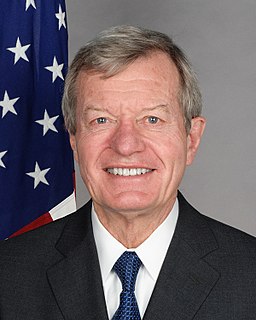A Quote by Jeane Kirkpatrick
The absence of utopianism in the Constitution, law, and traditional political culture has been ... important in limiting expectations concerning what can be achieved by politics. The history of the last two centuries confirms what the framers of the Constitution understood: that the perfect is the enemy of the good, and the search for unalloyed virtue in public life leads to unalloyed terror.
Related Quotes
That, in part, is why the Constitution's framers gave justices life tenure ? to enable them to rule wherever the law and the Constitution led them, without obligation or fear of political reprisal. Former Republican president Gerald Ford recently paid tribute to John Paul Stevens, his only appointee to the Supreme Court, who is also far more liberal than Republicans expected. He has served his nation well, ... with dignity, intellect and without partisan political concerns.
People must be confident that a judge's decisions are determined by the law and only the law. He must be faithful to the Constitution and statutes passed by Congress. Fidelity to the Constitution and the law has been the cornerstone of my life and the hallmark of the kind of judge I have tried to be.
Until the 1930s, the Constitution served as a major constraint on federal economic interventionism. The government's powers were understood to be just as the framers intended: few and explicitly enumerated in our founding document and its amendments. Search the Constitution as long as you like, and you will find no specific authority conveyed for the government to spend money on global-warming research, urban mass transit, food stamps, unemployment insurance, Medicaid, or countless other items in the stimulus package and, even without it, in the regular federal budget.
I think frustration unfortunately, reflects a real breakdown in the political parties themselves, which is fascinating because our constitution did not anticipate political parties. They're not even written in the Constitution, there's no guidelines. When we look at the arcane processes of delegate selection in the primaries and caucuses, it's not in the Constitution. This is all created post Constitution. And yet I think we're in the middle of tensions between and within the political parties. They're not functioning that well.
I believe that the power to declare war is most important in limiting the powers of the national government in regard to the rights of its citizens, but that it does not require Congress to give its approval before the president uses force abroad. I do not believe that the framers of the Constitution understood the power to declare to mean "authorize" or "commence" war. That does not mean that the separation of powers or checks and balances will not work.
The commitment to international agreements is embodied, it's found in the U.S. Constitution. Article Six of the U.S. Constitution provides that treaties of the United States are part of the supreme law of the land along with the constitution itself and laws passed by Congress. Well, the US government certainly has not been acting in recent years as if treaties were part of the supreme law of the land.








































